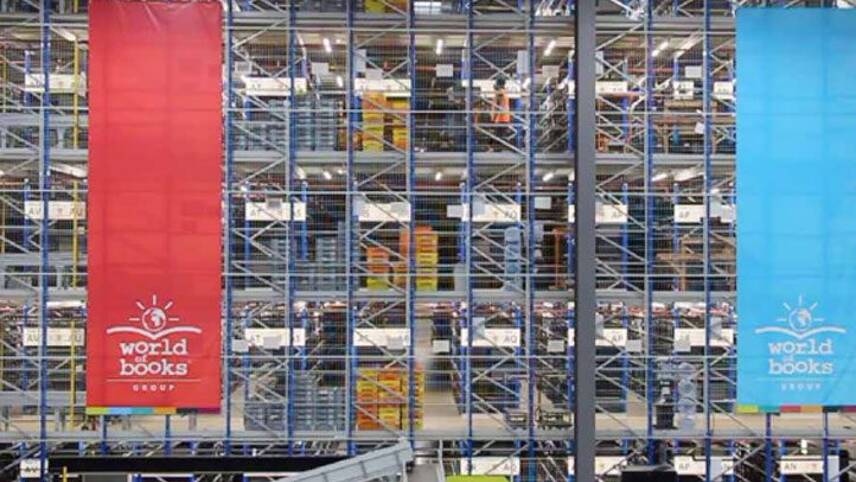Register for free and continue reading
Join our growing army of changemakers and get unlimited access to our premium content

Pictured: World of Books' warehouse operations
The business had already pledged to reach net-zero by 2030 and has stated that the new pledge is “a huge step on that journey”.
World of Cooks Group met its 2020 pledge to reduce the carbon footprint of each book sold by 30% last year and claims the achievement was the result of years of hard work adapting operations. Focuses to date have included energy-efficient buildings and more efficient deliveries, in which books are better grouped. On the former, it has invested in LED lighting and automated meeting room technologies as well as lower-carbon boilers. On the latter, World of Books estimates that it has mitigated more than 866,600 miles of vehicle travel since 2017.
Carbon savings have also been realised through the use of less packaging and making the switch to recycled paper and card, which uses less energy and water in production.
To reach the new carbon neutrality commitment, World of Books will offset residual emissions from Scope 1 (direct) and Scope 2 (power-related) sources as it works to baseline Scope 3 (indirect) emissions more fully. Scope 3 can then also be offset.
World of Books had already been offsetting any additional carbon relating to the purchase of new books. It first started offering new books in 2020, in cases where suitable used copies are out of stock. In 70% of cases, new book buyers also selected at least one used product. The new pledge will broaden this approach.
“As the world around us is changing, our sense of responsibility, purpose and drive to make a difference remains the same,” World of Books’ head of impact Amy Greenacre said.
“Climate change is a real and imminent threat to our planet, so we’re always taking action to reduce our carbon footprint and are now able to pledge to achieve carbon neutrality by 2022.”
World of Books has recognised that net-zero and carbon neutrality are different and that more in-house work will need to be done to meet its 2030 climate commitment. It has stated that its net-zero work will cover scope 1, 2 and 3 emissions, prioritising reduction over offsetting. The firm will follow the Carbon Trust’s definitions and guidance.
Covid-19 challenges
The new climate commitments were announced as World of Books published its social and environmental impact report for financial year 2019/20.
According to the report, businesses across the UK’s used product retail space faced much disruption as a result of Covid-19 lockdowns. For World of Books specifically, the usual supply chain was disrupted as suppliers had to implement new measures on home working, PPE, social distancing and sanitation.
As the months went on, the business had to deal with the ways in which charity shop closures affected book donations across the UK. It also saw an increase in product sales online and had to couple this with the challenge of decreasing fleet miles travelled.
Despite these challenges, World of Books recorded more than 7,9 million direct customers in the UK in 2020. It also saw more than 167,000 people using its Ziffit platform, which operates in the UK, Ireland and the US, and lets users donate unwanted goods to raise money for charity. Ziffit is operated through a partnership between World of Books Group and Virgin Money Giving.
The report also outlines how World of Books took time during lockdown to retrofit its headquarters in Goring-by-Sea to improve resource and energy efficiency, add more green spaces and boost employee wellbeing.
Sarah George


Please login or Register to leave a comment.